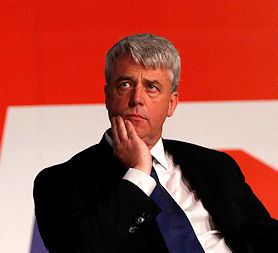Public Health White Paper published
 Victoria Macdonald
Health and Social Care Editor
Victoria Macdonald
Health and Social Care Editor
The Government will publish its Public Health White Paper later today, but it will not include strategies on food, obesity, alcohol and tobacco, writes Social Affairs Correspondent Victoria Macdonald.

The promise in today’s White Paper is that the Coalition Government will go further and faster in tackling causes of premature death and illness and reduce health inequalities. It is a bold pledge for an often seemingly intractable problem.
A bold pledge for an often seemingly intractable problem
Although there has been much speculation about the White Paper, there will be nothing in it about alcohol, obesity and food policy. That is all to come in the New Year. Nor will there be anything on tobacco.
Budget ring-fenced
Much of today is about structural change, with a nod towards the philosophy the Government intends to pursue. It will ring-fence the public health budget, a move welcomed by public health directors who were continually frustrated under Labour by the money being swallowed up by acute hospitals. It will also transfer responsibility for public health away from NHS trusts and back to local Government.
There will be an appointment of ‘champions’ of healthy living, set up by local councils, and a Health Inclusion Board, chaired by Professor Steve Field, who recently stood down as chair of the Royal College of GPs. His task will be to look into the causes of deprivation and health inequalities. And there will be a new public health premium, which will give councils money for delivering improvements in health inequalities.
‘Nudge’
Overriding all this, is the Government’s desire to distance itself from accusations of the ‘nanny state’, for which Labour was often criticised. Instead it will use ‘Nudge’, a slightly hazy concept of helping the public towards reaching the right decision rather than making them do something like stop smoking, or losing weight, which they may not feel inclined to do.
To this end, it is likely it will announce a scheme for encouraging young children to walk to school, such as giving them vouchers to spend. The Health Secretary, Andrew Lansley, will say the Government intends to keep out of people’s everyday lives as much as possible.
Sandwell
Six years ago, Channel 4 News went to Sandwell as Labour was launching its Public Health White Paper with its strategy for dealing with health inequalities and healthy eating and lifestyles. Yesterday we returned to look at how much progress had been made since then. The answer was less than might have been hoped.
Dr John Middleton, the Director of Public Health for Sandwell Primary Care Trust, said that money promised by the then Secretary of State for Health, John Reid, never materialised. It was, instead, sucked into propping up cash shortfalls in the NHS.
Dr Middleton said health inequalities are still a major issue. The people of Sandwell have a two to three year lower life expectancy than the national average, and 17 of its electoral wards are in the worst 25 per cent of the country for deprivation.
Childhood obesity
The latest figures show that in 2001, 28 per cent of children in years five and six were overweight or obese. In 2008 – the latest figures available – it was 39 per cent.
But there were some improvements. Sandwell introduced health trainers who have regular contact with people needing help with weight or heart disease, and they have set up a cardiac risk programme to identify people at the highest risk. He said this had saved lives.
And when we visited in 2004, Sandwell had a serious problem with access to shops selling fresh fruit and vegetables. Today, they have made progress on that through the previous Government’s Change4Life programme.
However, Dr Middleton welcomed today’s move to ring-fence the public health budget and to move back to local authority control. He said public health needed to permeate the decisions taken by councils. “If they are improving housing, they need to be thinking about insulation or reducing accidents, rather than building a new garage,” he said.
-
Latest news
-
Locations for 16 new special needs schools in England announced8m

-
Inside the King’s College encampment at Cambridge University4m

-
Putin says Russia will not be threatened in Victory Day speech3m

-
Stormy Daniels clashes with Trump lawyer in first criminal trial of a US president3m

-
UK interest rates held but cut could be on the way6m

-




